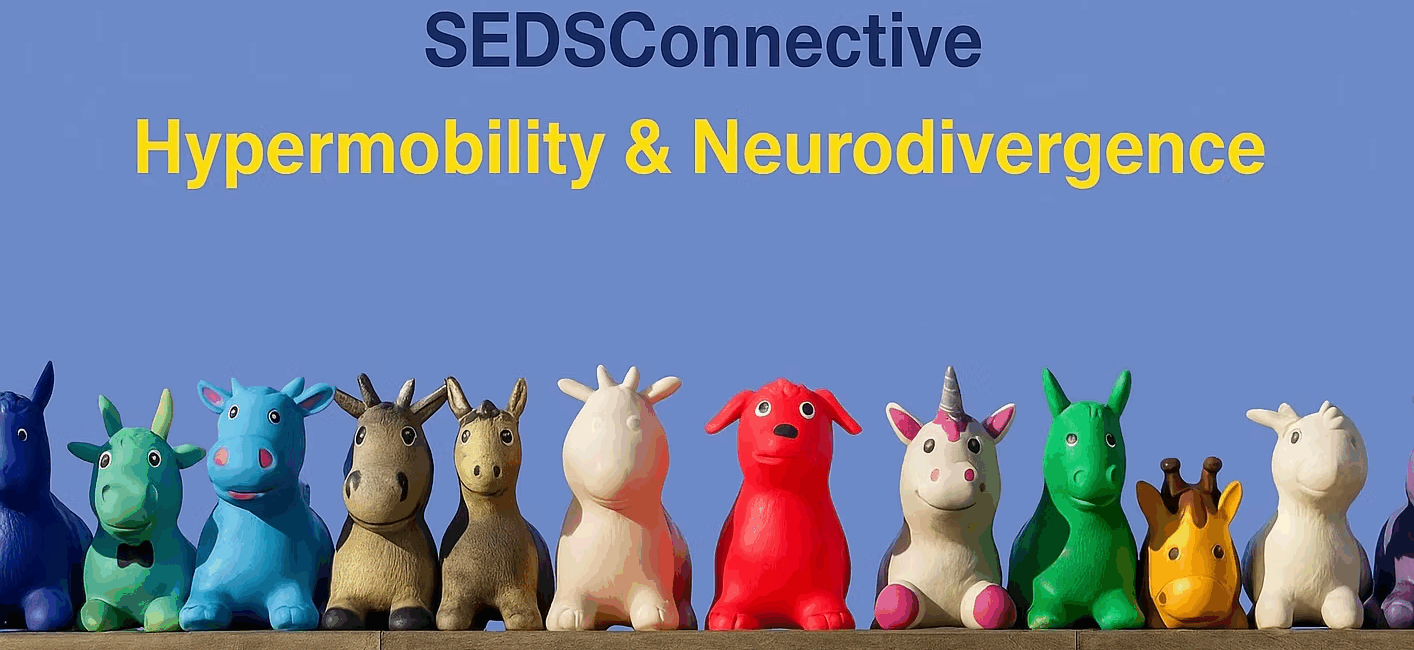We’re proud to celebrate the achievements of SEDS Connective, one of our valued UOK partners and a leading user-led organisation supporting people with symptomatic hypermobility, EDS, co-occurring neurodivergence, and related conditions.
SEDS Connective has recently had significant success in shaping national policy. Their written evidence on Autism, ADHD, and the SEND/EBSA crises has been accepted and published by the House of Lords as part of the 2009 Select Committee’s inquiries. This is a major milestone, and a powerful recognition of the lived experience–driven expertise they bring to the national conversation.
Championing better understanding of neurodivergence and hypermobility
The submitted evidence highlights the vital links between body–brain hypermobility, autism, ADHD, and educational barriers such as Emotionally Based School Avoidance (EBSA). It challenges outdated assumptions, calls for more appropriate support frameworks, and advocates for a more nuanced, scientifically grounded understanding of neurodivergence.
Read their submissions here:
Written evidence: SEND crisis & EBSA
https://www.sedsconnective.org/post/written-evidence-send-crisis
Written evidence: Autism, policy and body–brain hypermobility
https://www.sedsconnective.org/post/autism-policy-bodybrain-hypermobility
These papers contribute to a growing body of national evidence showing that many autistic or ADHD individuals are under-recognised, misdiagnosed, or misunderstood because hypermobility and neurological differences present in overlapping ways. SEDS Connective continues to push for policy, services, and training that reflect this complexity — ensuring people receive support that fits who they actually are.
Leading research into ADHD diagnosis and care
SEDS Connective’s policy work is also tied to their research contributions. Their recent publication, “ADHD: overdiagnosis or opportunity?” in the British Journal of General Practice explores the nuances of ADHD identification and unmet need, especially among under-recognised groups.
Read the journal article here
This paper adds to a much-needed national discussion: not about whether ADHD is “overdiagnosed”, but whether we are asking the right questions about who is being recognised, whose needs are missed, and how conditions like hypermobility can interact with neurodevelopmental profiles.
A powerful voice in our partnership
At UOK Brighton & Hove, we’re proud to work alongside SEDS Connective. Their advocacy is deeply rooted in lived experience, and their expertise is reshaping not just local support, but national understanding.
Their involvement helps ensure that the UOK partnership remains:
• evidence-based
• neuro-affirming
• accessible to people with complex or intersecting conditions
• shaped by the voices of those with lived experience
We celebrate their achievements and look forward to seeing the impact of their work continue to grow, both within our community and across the UK.




